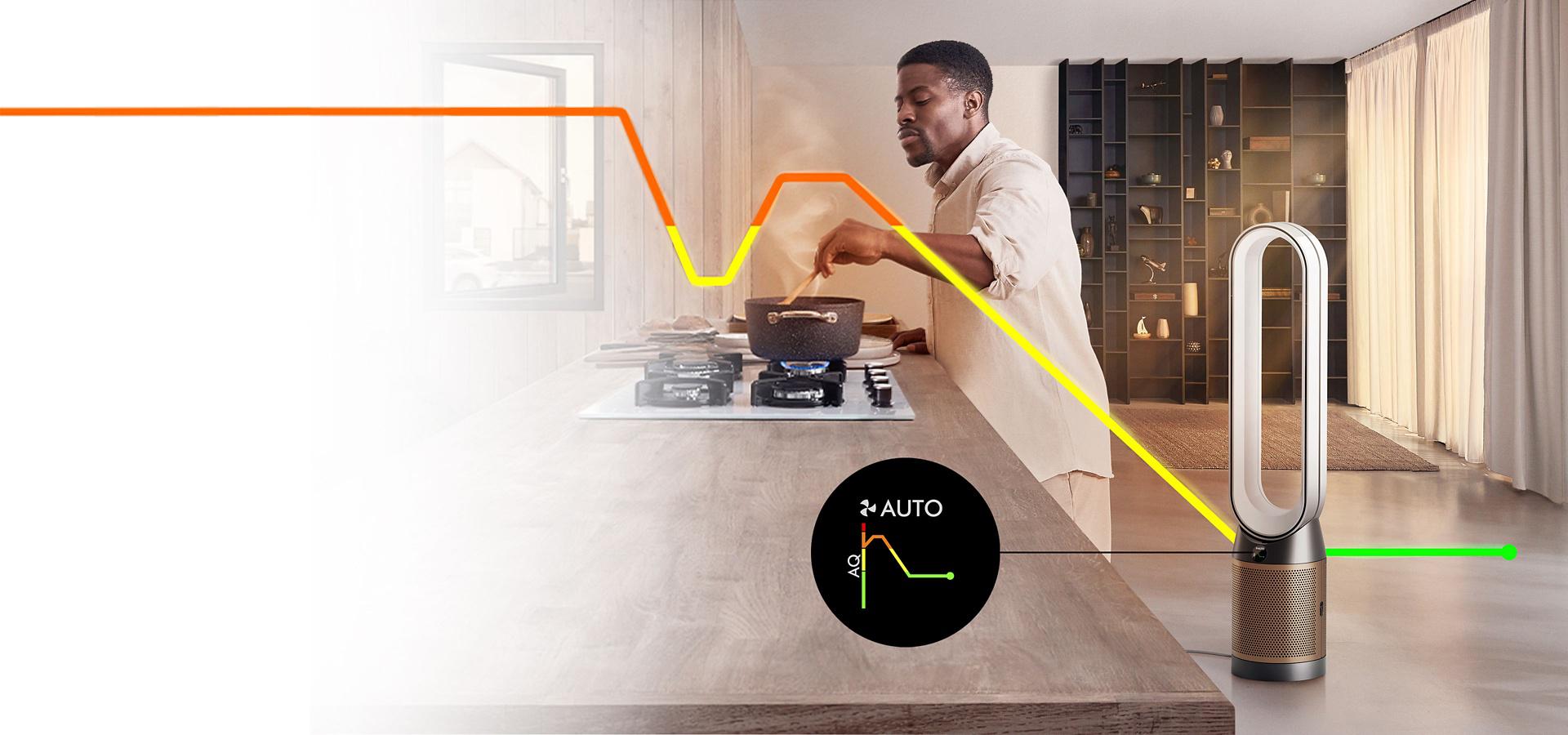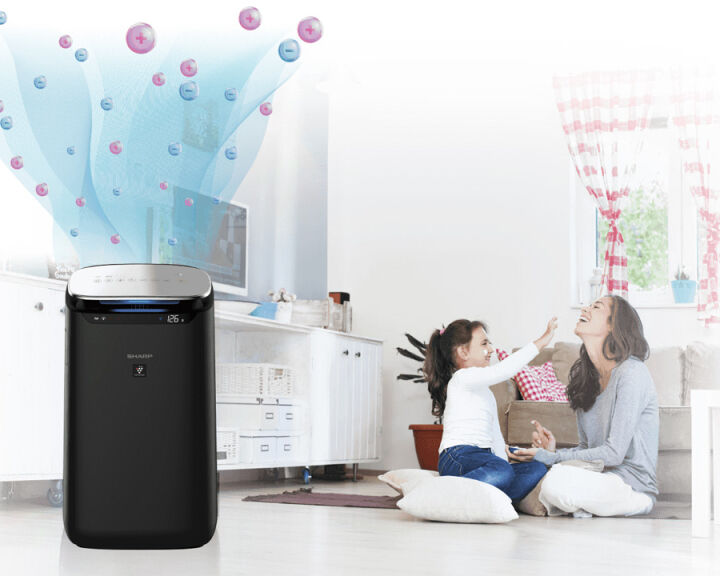Featured
Table of Contents
- – Understanding Allergies and Triggers
- – Can Air Purifiers Assist With Allergies?
- – The Scientific Research Behind Air Purifiers ...
- – Are Air Purifiers Right for You? Elements to ...
- – Maximizing Air Purifiers for Allergies
- – Beyond Air Purifiers: A Multi-Pronged Approach...
- – Living a Breath Easier Life with Allergies

Air purifiers are frequently proclaimed as an option, promising cleaner air and alleviation from allergy symptoms. Are air purifiers genuinely worth the financial investment for allergic reaction victims?
Understanding Allergies and Triggers
To recognize the role of air purifiers, allow's first explore allergic reactions and their triggers:
- The Sensitive Feedback: Allergies happen when your body immune system overreacts to a safe compound, like pollen or allergen. This response sets off the launch of histamines, triggering allergic reaction symptoms like sneezing, coughing, itchy eyes, and a drippy nose.
- Typical Irritants: Indoor irritants include allergen, animal dander, mold and mildew spores, pollen that wanders inside, and even cockroach allergens. These airborne bits can irritate your airways and activate allergy signs and symptoms.
Can Air Purifiers Assist With Allergies?
Air cleansers function by attracting in air, straining toxins, and releasing cleaner air back into the room. Right here's just how they can possibly benefit allergic reaction sufferers:
- Trapping Allergens: HEPA (High-Efficiency Particulate Air) filters, a common kind used in air purifiers, are very effective at catching airborne irritants like allergen, family pet dander, and plant pollen. By removing these triggers from the air you breathe, air purifiers can help lower allergic reaction symptoms.
- Improved Air High Quality: Air cleansers can also eliminate other irritants from the air, such as smoke, dirt, and unpredictable organic substances (VOCs) This general renovation in air top quality can be beneficial for allergic reaction sufferers that are sensitive to these additional triggers.
The Scientific Research Behind Air Purifiers and Allergies
Research studies have shown that air purifiers can be practical in minimizing allergy signs and symptoms. Right here's a consider some crucial research findings:
- A 2019 evaluation released in the journal "Existing Allergic reaction and Asthma Records" ended that air cleansers with HEPA filters can be effective in decreasing allergy signs and symptoms and enhancing high quality of life for individuals with allergic rhinitis (hay high temperature)
- A 2018 research study published in the journal "Annals of Allergy, Asthma & Immunology" discovered that utilizing an air purifier with a HEPA filter in the bed room substantially minimized dirt mite allergen degrees and enhanced rest quality in people with asthma.
Nonetheless, it's crucial to note that research likewise suggests some restrictions:
- Air Purifier Coverage: Air cleansers are most reliable in the room where they are put. Their influence on irritants in other components of your home may be very little.
- Seriousness of Allergies: While air purifiers can help, they may not be a complete remedy for severe allergic reactions. Medicines and various other allergy monitoring techniques may still be required.
Are Air Purifiers Right for You? Elements to Take Into Consideration
Below are some crucial aspects to think about when determining if an air purifier deserves it for your allergies:
- Intensity of Allergies: If your allergic reactions are mild and well-controlled with medication, an air purifier could not be essential. Nevertheless, for those with moderate to serious allergic reactions, an air purifier can be a beneficial device in handling symptoms.
- Kinds of Irritants: Consider the major triggers for your allergic reactions. Air cleansers are most effective for airborne allergens like dirt mites, pet dog dander, and pollen. They may not be as valuable for irritants like mold that expand on surfaces.
- Way of life and Environment: If you have pet dogs, reside in an area with high pollen counts, or have issues about interior air high quality, an air purifier can be helpful.

Maximizing Air Purifiers for Allergies
If you determine to buy an air purifier for allergies, here are some suggestions for maximizing its efficiency:
- Pick a HEPA Filter: Seek an air purifier with a HEPA filter certified to record fragments as small as 0.3 microns.
- Right Size for the Area: Ensure the air purifier has a Clean Air Distribution Price (CADR) that is appropriate for the size of the area you plan to utilize it in.
- Positioning Issues: Put the air purifier in the room where you invest one of the most time, such as your bedroom.
- Regular Filter Maintenance: Change HEPA filters according to the manufacturer's instructions to maintain optimum efficiency.
- Incorporate with Various Other Approaches: Air cleansers are not a one-size-fits-all option. Combine them with various other allergy management strategies like medication, routine cleansing, and allergen-proof bedding.
Beyond Air Purifiers: A Multi-Pronged Approach to Allergic Reaction Administration

While air cleansers can be an important device in your allergy collection, they are not a wonder drug (If you're looking to buy an Air Purifier then Air Cleaners Australia is the best destination.). A detailed technique that combines air purification with other techniques is crucial to attaining long-term allergy alleviation. Right here are some extra techniques to consider:
- Medicine: Antihistamines, decongestants, and nasal corticosteroids, recommended by your doctor, can effectively take care of allergic reaction signs.
- Allergy Testing and Immunotherapy: Recognizing your details irritants with allergic reaction testing can lead the way for immunotherapy, a treatment that helps desensitize your immune system to irritants over time.
- Air High Quality Monitoring: Normal cleansing with a HEPA-filtered vacuum and allergen-specific cleansing products can significantly lower dust mites, animal dander, and various other irritants in your house.
- Controlling Moisture: Mold and mildew thrives in humid environments. Making use of a dehumidifier can aid manage moisture degrees and stop mold and mildew growth, an usual interior allergen.
- Way of living Adjustments: If you have allergies to pollen, remaining indoors during peak plant pollen periods and bathing after investing time outdoors can aid reduce exposure.
- Bed linen and Surfaces: Enclosing cushions and bed mattress in allergen-proof covers can significantly decrease allergen direct exposure. Frequently cleaning bed linen in hot water aids get rid of allergens.
Living a Breath Easier Life with Allergies
Bear in mind, handling allergic reactions is a continuous process. By recognizing your triggers, executing a multi-pronged strategy, and potentially including an air purifier right into your strategy, you can considerably lower allergic reaction symptoms and breathe easier.
Extra Considerations:
- Consulting a Physician: If your allergic reactions are extreme or not well-controlled with medicine and way of living adjustments, get in touch with a specialist for customized referrals.
- Air Top Quality Surveillance: Think about utilizing an air top quality display to track irritant degrees in your house and adjust your administration techniques as necessary.
- Long-Term Financial investment: A top quality air purifier can be a long-term investment in your wellness and well-being.
By taking a proactive approach and taking on a mix of these approaches, you can develop a much healthier and allergy-friendly environment, enabling you to delight in a breath simpler life.
Table of Contents
- – Understanding Allergies and Triggers
- – Can Air Purifiers Assist With Allergies?
- – The Scientific Research Behind Air Purifiers ...
- – Are Air Purifiers Right for You? Elements to ...
- – Maximizing Air Purifiers for Allergies
- – Beyond Air Purifiers: A Multi-Pronged Approach...
- – Living a Breath Easier Life with Allergies
Latest Posts
Understanding the Shift: Why sydney is Phasing Out Gas
What Does Is Dishwashing Yeti Ramblers A Safe Bet? Mean?
Everything about Are Yeti Ramblers Meant To Brave The Dishwasher?
More
Latest Posts
Understanding the Shift: Why sydney is Phasing Out Gas
What Does Is Dishwashing Yeti Ramblers A Safe Bet? Mean?
Everything about Are Yeti Ramblers Meant To Brave The Dishwasher?